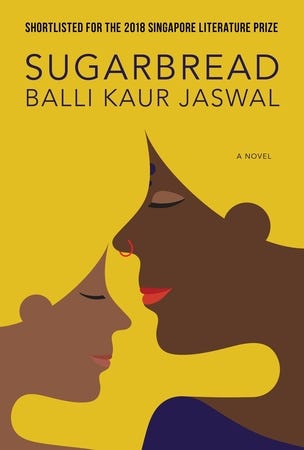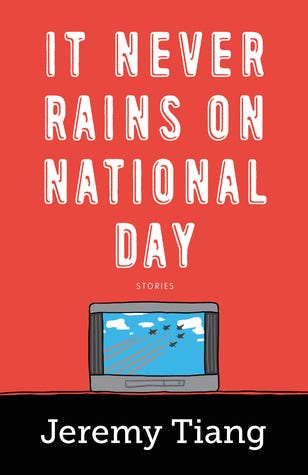Then later...I don't remember whether or not I blogged about the computer center not being open on the same schedule the bus ran, and about getting free rides to and from the computer center on some days but not knowing which days those would be in time to arrange individual bus service a day ahead, and about scheduling a bus for one individual passenger not being a very Green alternative to car-pooling or walking, and about the Yuma (Virginia) computer center being only two hours' walk from home in any case, and about its being shut down for lack of patronage anyway...but all of those things happened.
Bottom line, as a good Granola Green I made a real effort to support what my home town has in the way of bus service, and I found it to be...more like a disservice.
Some days I walked to Yuma in the rain or snow. Many nights I walked back in the rain or snow, because there was no night bus and nighttime was when the computer center got what other patrons it got. The Yuma Road is a winding two-lane road with no berms, no sidewalks, large rocks and deep puddles right up to the paving, and a lot of incompetent night drivers who actually brighten their lights to make it harder for anyone to walk along the road after dark "because that was the only way I could see you."
The "public-private partnership" mess that may beg some of you for money in the name of "Mountain Empire Older Citizens" is not interested in expanding to provide a Green alternative for shoppers and commuters. They say they do that, but they don't. Staff are trained to think of themselves as overseers managing the "needs" of full-time professional welfare dependents, not employees working for customers. They do have a schedule, although it's not full, but they don't disclose that schedule. You practically have to pull their teeth to get information like "We have a bus going from point A to point B at ten o'clock on Thursday." They want to know all about you, first, who you are and where you're going and what kind of disability you have, and they're obviously not comfortable with the idea that you're an able-bodied, competent, cash-paying passenger. By way of restitution for having destroyed the locally owned independent taxicab service, they will--grudgingly--accept cash payment from someone who's not claiming a disability pension, but they can't seem to shake off that attitude that they're the responsible adult in charge of transporting brain-damaged patients to their occupational therapy sessions. They actually get more money in subsidies for hauling those brain-damaged patients, so their interest in transporting, e.g., working adults from Gate City to and from evening classes at Mountain Empire Community College, is subzero.
They run one bus between Gate City and Big Stone Gap. It arrives too late for any morning classes and leaves far ahead of any evening classes. It's pretty well filled up by brain-damaged patients, although the patients ride only as far as Duffield. It guarantees anyone from Gate City more time on the bus to and from than they'd actually be able to spend at the college. Not only are the drivers not trained to discourage the brain-damaged patients from harassing any paying passengers willing to ride with them, they're ordered to limit the number of competent people they haul and make sure they prioritize the "needs" of geriatric patients over any, y'know, workers or students or anything, who (according to greedhead-as-opposed-to-Green thinking) ought to own and drive their own cars anyway.
I don't know about M.E.O.C., which is actually part of an alleged charity that solicits money for "Poor Appalayshia" in New England. Whenever I've talked to anyone about them, any year since at least 1991, I always hear "They weren't of any use to me but they do good things for other people." Which other people would those be, exactly? I've never talked to anyone who knew any of them personally. I've talked to people who were promised visiting nurses who never visited, people whose sensitive personal information was blabbed to total strangers just because a bus driver thought it was an interesting story, people who were not rehired to visit patients who wanted them back after they'd taken leave or not given extra time to weekend "team-building" activities...the Older Citizens with whom I've worked, and the bus riders who were sane enough to be asked, always saw a lot of room for improvement. Nobody who had an alternative ever stayed with M.E.O.C. long, either as a visiting nurse or as a patient. I would warn you readers against giving money to M.E.O.C. or its parent organization, "Oxbow."
I would warn everybody against supporting any alleged community service that is oriented toward helping people depend on handouts rather than on becoming self-funding, or even profitable, by working with people who work, go to school, and pay their own way. The Southern Appalachian Mountain region is infested with more than one so-called charity whose actual goal seems to be keeping people trapped in welfare-cheating addiction rather than helping them get out of it.
Anyway, M.E.O.C. does run buses between Gate City and Kingsport, but...a few years ago, when I was commuting, we even considered that option. Could they arrange regular commuter bus service between, e.g., a convenience store in Gate City and a convenience store in Kingsport? "We don't just set people off on corners. We take you from your home to her home (or vice versa). We need your actual street addresses." We decided they did not need any old lady's street address, name, or day's itinerary, to broadcast over the radio and generally bandy about. When my visiting and working with and for one of my favorite living people in all the world became a problem, M.E.O.C. "service" was not an option we considered again.
Years ago, before "Agenda 21" had been officially denounced (but not really abandoned) by the United Nations, activists alerted me and I checked: Yes, there were people who saw themselves as "regional planners," with an actual unstated goal of interfering with anything managed by state governments, who really had made it a funding goal to recast Gate City, Virginia, as "a suburb of Kingsport, Tennessee" rather than a town in its own right. Their goal was to wipe Duffield off the map and to discourage any connection between Gate City and Big Stone Gap. They succeeded in getting federal financial aid rules rewritten to subsidize in-state tuition for Gate City students who wanted to go to East Tennessee State University. They did not subsidize transportation for those of us who might have wanted to take classes at E.T.S.U., which isn't really all that much further away than M.E.C.C., but only takes longer because of traffic, while working and living at home in Gate City.
I never found out what plans they had for Big Stone Gap or for Mountain Empire Community College, exactly, but those plans did not include allowing Gate City students to take junior-college classes in our own state school system, starting where our high school leaves off, and paying fees students can actually hope to afford. Obviously E.T.S.U. offers more advanced classes for more adults in search of continuing education credits, but, I've been credibly informed, for Gate City High School students in search of degrees, their junior college classes are mostly review and a dead bore. And even in-state tuition at E.T.S.U. is not kept down to a level a typical 18-year-old freshman could reasonably expect to afford. University is, by definition, for rich people's children and for people who are already earning a good living with the skills they learned in college. But that's a separate rant.
Well...Grandma Bonnie Peters, who has contributed nothing to this blog since telling me to stop doing it out of her home office, is still alive and alert and has a visiting nurse of whom there've been no complaints. (She's been the perfect visiting nurse for a lot of people, for a long time, and would, I would imagine, be the perfect patient. She likes doing everything she can possibly do for herself, before anyone helping her arrives, and using the person's working time to do things they can agree are fun.) However, at least two sponsors have cornered me, this year. "We want more GBP. It's not right to deprive readers of their role model of How a Healthy Celiac Grows Old in Style. GBP is a Treasure, like George Burns or Betty White or the Delany Sisters. Besides, admit it, you miss her. Besides, admit it, all able-bodied people who are even a tiny bit Cherokee have a sacred duty to spend time with their Elders, and although GBP is not even a tiny bit Cherokee, she is an Elder of yours."
My not spending time with GBP has been by her own request, and part of my responsibility to her. If someone wants to pay for land phone lines, which neither of us has any more, or cell phone minutes, which cost a lot, GBP would probably still be willing to talk to this web site on the phone. She wouldn't be typing or editing--how could she, I'm using her computer--but the last time I saw her, she was still walking and talking, having recovered completely from bronchitis. She has always hated being fretted or fussed over and always hinted that, in old age, she intended to become one of those eighty-or-ninety-year-old types who are more concerned with saying goodbye, making sure their friends are going to be able to say goodbye, than with holding together. Her silence is a message. "One of these days, it won't be too long, they will look for me and I'll be gone...on my way to Heaven." Rather than clutching on to our ideas of what might or might not make her more comfortable in this life, she is, to some extent, telling us to prepare to look for her in the next one.
Some Elders truly want to be visited only if and when younger people truly want to spend time with them (as long as that's not so often it makes them feel more tired). That thought deserves a paragraph to itself, to encourage people to consider to what extent it might be true for them or their Elders.
"Well, yes; but you do truly want to see her," one sponsor persisted, "and so do we."
This is true. I don't know how much energy GBP has left after riding around with her visiting nurse and talking on the phone to her grandchildren. I know her reactions to glyphosate-tainted foods were much more drastic than mine, three years ago. Mine have become more frequent and worse due to the increased use of glyphosate as a preservative. I've spent a few days at home when I would have yelled out the window, if anyone had come up to visit me, "Go away or I'll call the police!" because...I wasn't unfit to walk, talk, write, or even do yard work, but I might at any moment have become unfit to be around. Unpleasant as it is to clean up your own celiac sprue effluvia, the idea of anyone else seeing it is worse. If you're too sick to stand on your feet, you will crawl on your knees to clean up your own mess before you let other people see it. So I don't know when or how much GBP wants to be seen face to face. I'm fairly sure that that's not what she wants readers to remember about her, but it's part of the reality of growing older and slower with out-of-control celiac reactions.
Still, I've not heard that she's given up walking to Wal-Mart, or seen any evidence that she's less than delighted to meet friends at Wal-Mart. (Large public restrooms, as accessible as restrooms can be, not far from benches where people can sit and chat for an hour. Indoor and outdoor tables where they can eat while they chat. Free water from fountains built at different heights. Rows of emergency phones along walls. Bus stops about ten years from the door. Nobody can say the newest Wal-Mart outlet wasn't designed for an aging clientele in increasingly precarious health.) GBP hasn't been making dates to meet anybody, but by going to the right Wal-Mart at the right time I've been able to meet her every few months. So far, even when I'm having celiac reactions, I've been able to walk nine miles to Wal-Mart and nine miles back...but during the week that leaves no time for either the blog or the store, and on weekends GBP is usually out with friends from church. (She sings, when she's feeling fit to go to church, in two choirs.)
At this point one sponsor pounced. "The town planning committee is working on a plan to extend the Kingsport Area Transit System to include a Gate City route!"
One thing Washington, D.C., and Gate City have in common: You get used to thinking of state lines as just another landmark. You know there's no reason why interstate bus service should be a special problem; if safety standards differ, you hold the bus to whichever standard is higher.
In fact, although I've been thinking for years about ways the railroad that currently blights the heart of Gate City could at least be earning its keep, we used to have an interstate bus line. The company called itself "Bristol-Jenkins," Jenkins being the name of a town (at least back then), but what I grew up seeing in Gate City were commuter buses between Gate City and Kingsport. In 1976, when my family were the only passengers on the full-sized bus (perpendicular bench seats for 40 adults or 60 children) up from Kingsport, the driver told us "These buses won't be around for long." They weren't. If not the last passengers on that route, we were among the last hundred.
The median age was younger, then; relative to the national average, the median income was higher. More people were working rather than "retired." Everybody could afford to buy their own car, if only a clunker, and there was tremendous social pressure to let everyone see that you had your own car. I knew a lady who must have been only sixty or seventy years old at the time. She could still walk, and leap in and out of farm trucks, and sling bales of hay around, on her husband's farm. She did those things. But when she was at her house in town, she would never walk down the block to the convenience store for a loaf of bread, any more than she would bake her own bread. She had a big gas-guzzling car, and enough money to buy air-puffed chemical-preserved bread, and she hadn't worked long and hard on the farm to leave people in town in any doubt about either of those things. No bus, no car pool, for her! So help her, she had arrived! That kind of thinking is one thing about the 1970s that I don't miss at all; it belongs in the same sewer with "Married women shouldn't have jobs" and "All Black people have low I.Q. scores."
I've ridden K.A.T.S. buses at times. Not often, because they only run around Kingsport and I can still walk across Kingsport more easily than waste a dollar; but if I'm in a hurry or with someone who doesn't want to walk, in Kingsport I'll catch a bus. By comparison with D.C. Metrobuses, K.A.T.S. buses are smaller--vans, really--and, well, less satisfactory, with radios and video displays that never stop and silly rules about how many bags each passenger can carry; but they are real commuter buses. They run from point A to point B. The drivers watch the road and don't ask questions. There's a schedule that applies equally to everybody. If you want to ride, you wait at the bus stop until a bus stops. If a friend is driving the way you want to go, you hop into the car, with no worries, because the bus has not been specially arranged and (normally) nobody is looking for you. If you decide not to go, for any reason or none, you just stay home, or go somewhere else, or whatever; no questions are asked.
That's the kind of bus service that is a service, rather than a disservice, to a community of competent adults. "Anyone who meets the bus, and pays cash or shows a prepaid bus pass, can ride" and "No questions are asked" are key concepts. We are not talking about the demographic group "people who have been legally ruled incompetent ever to make decisions for themselves." In order to improve traffic conditions and reduce air pollution, riding the city bus needs to be as independent, as private, as driving is. Maybe more so; K.A.T.S. could take a tip from Metro about making buses soundless except for quiet private conversations between passengers, losing the video displays, selling the idea of a bus commute as a place to listen to your own headset and think your own thoughts. Greyhound has done well with images of people napping or reading on buses and the slogan "Leave the driving to us."
Kingsport's little commuter/shopper buses, with the cartoon "Kats" painted on them, are earning their keep in Kingsport and would probably earn their keep in Gate City, too. More young people are rethinking the idea of driving their own car everywhere, and, more to the point, more of the majority generation are no longer young. A few weeks ago I heard someone younger than I am admit, "My night vision is going; I really shouldn't be on the road at 5:00 in winter." As a bookseller I'm growing unpleasantly familiar with the refrains, "I don't read books any more," or "Let me see that one--no, not that one--what about that one, and that other one, and that one over there?" as it becomes obvious that a shopper who'd like to read anything in a certain genre is looking for the book printed in the largest type. As someone who wants to be a permanent paying passenger rather than a driver in any car pool, I'm also growing familiar with, "I didn't see that!?! Why don't you drive?"
As long as I can still read any book that appeals to me, and set the computers I use to display my "signature" 8-point font at 80%, I do not intend to sacrifice any visual acuity to the "adjustment" to special glasses that, I'm told, might or might not offset my astigmatism and allow me to drive without eyestrain. I enjoy reading. I do not enjoy driving. Nufsed. I'd rather ride a bus. I'd rather let the people who are no longer willing to do all, or any, or able to do all, or any, of the driving, in the ever-decreasing number of car pools, ride a bus.
More people are living on disability pensions now than in 1976. More people are in fact disabled than in 1976. So some of the talk we hear about "If I could get to (whichever town I don't live in) I'd like to shop at the stores A, B, and C..." is merely wishful thinking from people whose money is all spent for them, usually before they get it, by the medical industry. But some people do in fact want to be able to shop in both towns; some can even afford to shop in both towns. Especially if they don't have to pay for gas, insurance, and maintenance on a car they really need to hand down to a younger relative.
More shopping in Kingsport? Meh. "I don't know why you want to open a store on Jackson Street anyway," a shopper said last month. "When I shop I always drive to Kingsport." Hmph. Time for some reciprocity on that. I'll make Kingsport an offer. When five people from Kingsport have spent $50 or more, apiece, in my store I'll go shopping in Kingsport. In recent years the only store I can afford to visit there has been Wal-Mart, except once in a while when I get a giftcard for Michaels. I can't even afford to prowl through the bookstores any more. I would like to change this.
But shopping is not the only reason why people from Gate City go to Kingsport, and why the need to limit or give up driving seems like a hardship.
* Most people in both towns have close friends and relatives in the other town. Many personal relationships (e.g. my love life for the past three years) are currently being strained by the "I'd like to go (wherever) with you, but I (can't afford the gas, can't afford the repairs, don't have a car, don't believe I'm fit to drive, all of the above)" refrain. For a lot of people who really need to sell their cars now, giving up driving currently means giving up visiting parents or children.
* What do students do when they don't find the right books in one town's library? (The different selections of books in the Gate City and Kingsport libraries used to amaze me until I realized it was planned; one library tended to get the book the other one didn't.)
* What happens when typical 18-year-old students can get the trade school courses they want at the community college extension in Kingsport?
* Kingsport has a very extensive, self-supporting, "activities" club for people over age 55, with enough members who live in Gate City that they've worked out a special fee schedule just for us. What happens when club members are still fit to participate in their favorite weekly activities, but not to drive?
* I even know people who live in one town who've become active members of churches in the other town. I don't understand this. Driving fifteen miles to listen to a sermon? I'd ask someone to record it, thanks. But some people are intensely involved with their "church families" and/or loyal to their denominations; some people will drive thirty miles to get to their favorite church. Those people usually participate in church activities during the week. Car pooling to the regular service is seldom a problem, but they're the ones who can't bear to give up the business meetings and sewing circles and service projects that churches usually leave to housewives and "retirees" to do during business hours.
I think K.A.T.S. buses should come to Gate City, and the sooner the better. No special subsidies should be necessary. The extended bus service should pay for itself in increased shopping, patronage of "services" that are subsidized per user (parks, libraries, the community college), and traffic safety. Just make riding a bus as unobtrusive and comfortable as driving, and people will ride the bus.

A vote for more GBP at this web site is a vote for more of those little van-sized buses.










![We All Reach the Earth by Falling by [Kamstra, Bauke]](https://images-na.ssl-images-amazon.com/images/I/51vKYUS8jqL._SY346_.jpg)






